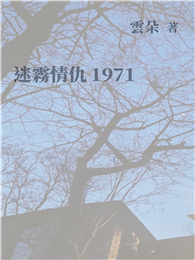Missionary Imperialists? examines the frontiers of empire in tropical Africa and the south-west Pacific in the Mid-Victorian era. Its central theme is the role played by British Protestant missionaries in imperial development and a continuous thread is the interaction between the missions and those in government, both London and in the colonies. An introductory chapter examines the main missionary societies involved in this study. This is followed by six detailed case studies, three from the south-west Pacific (the Pacific labor trade, Fiji, and New Guinea) and three from tropical Africa (the Gambia, Lagos and Yorubaland, and East Africa). The crucial importance of influential missionary supporters in Britain is noted as its missionary involvement in wider campaigning networks with other humanitarian groups. The book argues that where missionaries did aid imperial development it was largely incidental, an ""imperialism of result"" rather than an ""imperialism of intent"" to use the categories of Cain and Hopkins. It will be seen that although there were a few dedicated imperialists in the missionary ranks, and others gradually became convinced that the future of their particular mission and its people would be most secure under British jurisdiction, the majority had no such enthusiasm. Yet this did not mean that they had no effect on imperial development. Campaigns against both slavery and indentured labor inevitably raised the profile and influence of Europeans on the imperial frontier thus shifting a fragile balance in their direction. Most importantly, by their very presence on the frontiers of empire and as providers of education and European moral and spiritual values, missionaries became incidental and sometimes unintentional but nevertheless effective agents of imperialism.
| FindBook |
有 1 項符合
Missionary Imperialists?: Missionaries, Government and the Growth of the British Empire in the Tropics, 1860-1885的圖書 |
 |
Missionary Imperialists?: Missionaries, Government and the Growth of the British Empire in the Tropics, 1860-1885 作者:Darch 出版社:Wipf & Stock Publishers 出版日期:2009-04-01 語言:英文 規格:平裝 / 279頁 / 22.6 x 15 x 1.8 cm / 普通級 |
| 圖書館借閱 |
| 國家圖書館 | 全國圖書書目資訊網 | 國立公共資訊圖書館 | 電子書服務平台 | MetaCat 跨館整合查詢 |
| 臺北市立圖書館 | 新北市立圖書館 | 基隆市公共圖書館 | 桃園市立圖書館 | 新竹縣公共圖書館 |
| 苗栗縣立圖書館 | 臺中市立圖書館 | 彰化縣公共圖書館 | 南投縣文化局 | 雲林縣公共圖書館 |
| 嘉義縣圖書館 | 臺南市立圖書館 | 高雄市立圖書館 | 屏東縣公共圖書館 | 宜蘭縣公共圖書館 |
| 花蓮縣文化局 | 臺東縣文化處 |
|
|
圖書介紹 - 資料來源:博客來 評分:
圖書名稱:Missionary Imperialists?: Missionaries, Government and the Growth of the British Empire in the Tropics, 1860-1885
內容簡介
作者簡介
John H. Darch read history at the University of Wales, Lampeter, where he later returned to research for his doctorate. He taught history in two London schools before ordination into the Anglican ministry. After parish ministry in Shrewsbury, Chester and Hyde he lectured in Church History at St. John’s College, Nottingham. He is currently Director of Ordinands and Initial Ministerial Education for the Church of England’s Blackburn Diocese.
|











